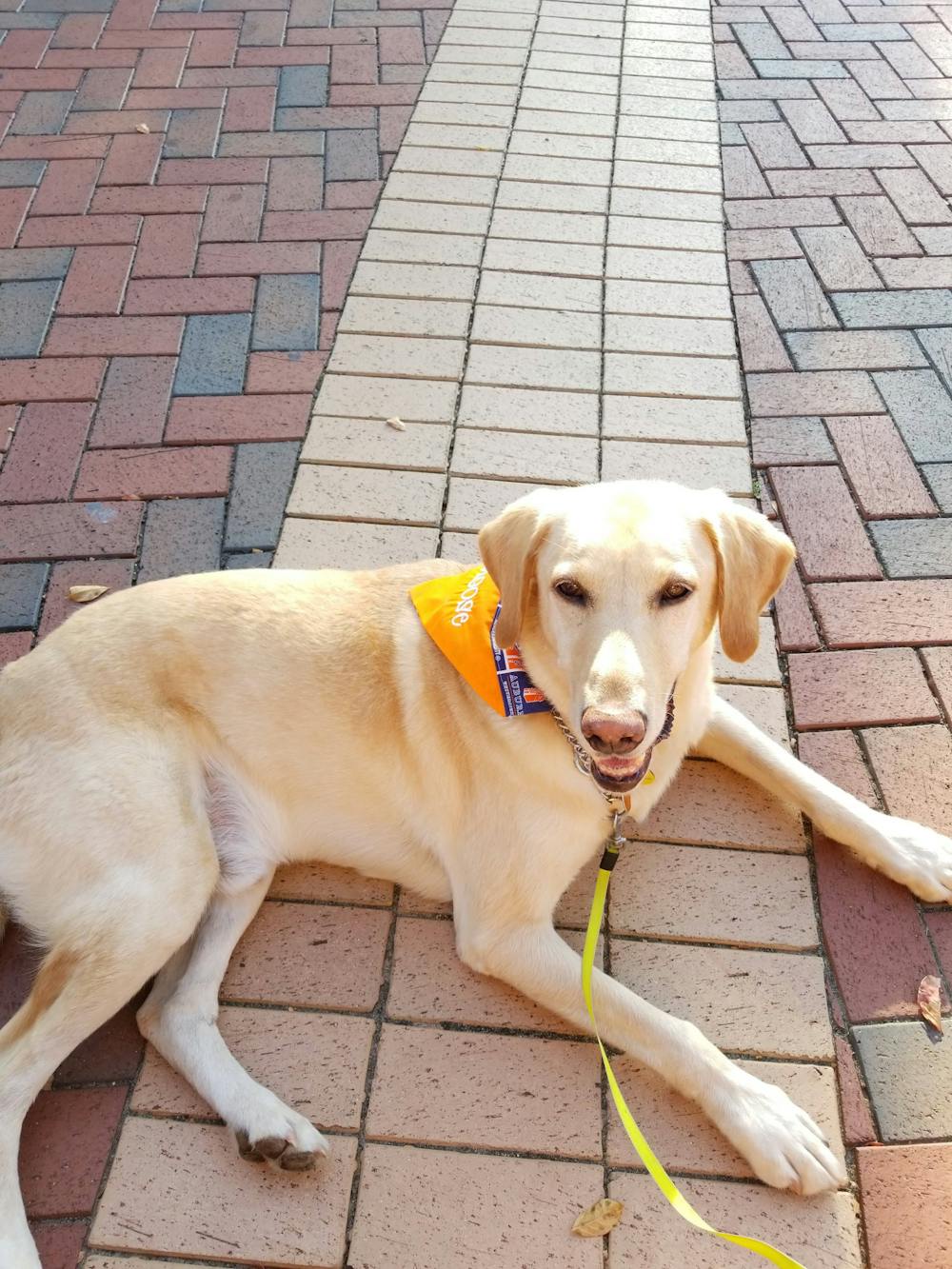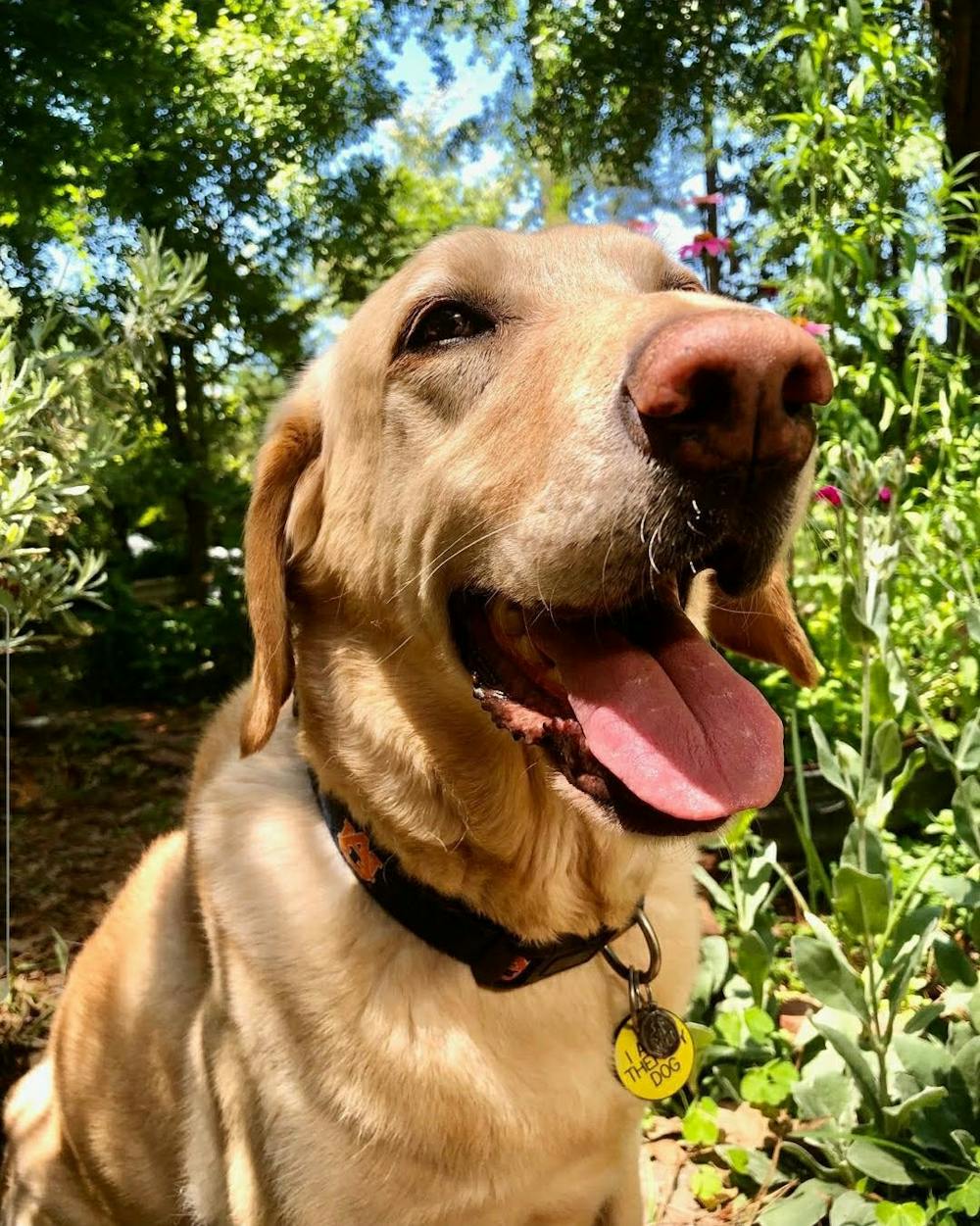Auburn University's first therapy dog Moose died on Jan. 19, 2024, from osteosarcoma, a type of bone cancer. He was 15 years old.
Osteosarcoma is a bone cancer found in both humans and dogs. In dogs, osteosarcoma is a tumor that forms when cell production is abnormal. The cells that the body produces – osteoblasts and osteoclasts – create and break down bones. Dogs are typically affected in their front and hind legs, but they can form osteosarcoma anywhere. This cancer decreased Moose's life expectancy to three to six months, even with treatment.
Researchers believe that osteosarcoma is genetic and is most common in larger breeds, like Golden Retrievers and German Shepards. Common signs of osteosarcoma are swelling, loss of appetite and lethargy. The cancer usually will have already spread by the time of diagnosis, even if it isn’t detectable.
If doctors treat dogs early, then amputation is effective to control cancer. Others use different types of radiation therapy, or chemotherapy, to control the spread. Compared to humans, chemotherapy isn't as physically strenuous to dogs.
In chemotherapy, dogs receive a smaller dose of treatment compared to humans. In turn, dogs are more likely to keep their fur. However, they still can experience vomiting and incontinence. While chemotherapy is a good choice for dogs, it is more beneficial to perform chemotherapy when the cancer is at an early stage.
After being diagnosed in December 2019, Moose fought and lived four more years. Moose went through chemotherapy, radiation, an amputation, physical therapy and acupuncture for his treatment.
Moose started working as a therapy dog in 2015 after previously working as a detection dog for the university. After six years as a detection dog, Doug Hankes met Moose and noticed that he would take well to the training to be a therapy dog.

Moose waiting in the SCPS office for visitors. Contributed by Priscilla Little
Even with his condition, Moose was still active in changing lives. Priscilla Little, who works for student counseling and psychological services as the office manager and worked with Moose, said Moose was “regal and stoic.”
“He was so stoic that you would not know if he was sick or hurt, and that’s what made it scary, because you wouldn’t know if he was hurt,” Little said. “Summing up his personality in one word is hard. He was a happy dog, a loving dog, he cared. He was the best dog anyone could ask for.”

Moose waiting to start one of the "Get mov'in with Moose" sessions. Contributed by Priscilla Little
Little mentioned her favorite memory with Moose was taking walks with him behind the College of Forestry, Wildlife and Environment buildings every day. She said walking Moose was “part of the best job ever.” She also mentioned that Moose “loved tennis balls,” when he wasn’t working with students.
Little shared how the "miraculous" Moose was able to beat all odds following his diagnosis.
“Moose lived a very full life. Way beyond expectancy. When he was first diagnosed with cancer, the prognosis wasn’t good," Little said. "It looked like we would be lucky to have him another six months, and he was like ‘Nope, I’m going to be here for a while.’ And he was, he was here another four years."

Moose taking his daily walk around campus. Contributed by Priscilla Little
Little also accompanied Moose and his colleagues Nessie and Rooster for his biweekly walk, called “Get mov’in with Moose.” This walk is three miles on Monday at 8 a.m. and Thursday at 4 p.m. when the weather was ideal.
Moose became an icon of sorts, students knowing him for his kindness and compassion for them. Staff noted him for being silly around the office and keeping morale up. When reflecting on Moose’s level of professionalism that led students to adore him, Little claimed Moose was “very eager” to attend sessions.
“He did an extraordinary job at his profession as an animal assisted therapist,” Little said.

Moose being silly around the office. Contributed by Priscilla Little
Whether it be the parent runs at Camp War Eagle, Mov’in with Moose on Mondays and Thursdays, or every day in the student counseling and psychological services office, Auburn University will never be the same. Moose brought a sense of comfort to all students and staff who had the honor of meeting him, and his legacy as Auburn University's first therapy dog will live on forever.
Do you like this story? The Plainsman doesn't accept money from tuition or student fees, and we don't charge a subscription fee. But you can donate to support The Plainsman.

Brychelle Brooks, senior majoring in public and professional writing with a minor in information systems, has been with The Auburn Plainsman since August 2023. She previously served as the Campus Reporter, Opinion Editor and Newsletter Editor. She is currently serving as the Editor-in-Chief.





